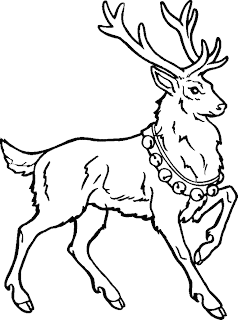In which there's another little winter story (I rarely run out)
There's a gigantic, scruffy-looking black walnut tree in the backyard at Haiku Farm.
When we moved here in early spring 2009, the other trees were already beginning to bud and leaf out, but the walnut stood steadfastly naked for months. If we'd had more time, we'd have called it a dead tree and cut it down for firewood, but the first year in a new place is a busy time, and the first year on a farm is doubly busy.
I don't think we paid any attention to the tree until summer...when it suddenly produced leaves, buds, blossoms and fruit. Amazing.
The Walnut Tree and the
Philosopher (Turkey)
One
day a traveler passed by. He stopped by the old walnut tree to rest in its shade.
Then he noticed the green fruits and tasted one of them only to spit it out in
disgust, because the husk was so bitter.
Sometime
after he had gone, another traveler passed by. He too sat under the tree and
noticed the tooth marks on the fruit the first one had bitten. “This fruit must
not be very tasty,” he thought. “But everything in this world has a purpose. It
must be the hard heart that is to be eaten.” And he bit the hard shell but
nearly broke a tooth in the process. He too walked away hungry.
Next
came a traveler with a scholarly disposition. He studied the fruit carefully,
first tasting the bitter skin, then scratching the hard shell until he came up
with the idea to break the shell with a stone. That was rewarded with the tasty
walnut. The scholar smiled contently: “Wisdom and patience conquer all,” he
thought.
Soon
a businessman leading a donkey laden with his goods arrived under the tree. The
scholar happily shared with him his secret. The businessman thanked him and
after they had eaten loaded the donkey with walnuts for sale. He let the
scholar ride the donkey as a reward for his discovery while he himself walked
and rubbed his palms in anticipation of his future profit.
They
traveled in silence but soon darkness fell over the road. They were worried
because there wasn’t a town or village to be seen and they were afraid to spend
the night in the dark forest. Suddenly the merchant saw a faint light in the
distance.
“There,"
he said. “I see a light!”
“But
how can that faint light help us,” said the scholar. “It is so small and lonely
while the forest is big, dark and threatening.”
While
they were arguing, the light moved closer and they saw a man carrying a
lantern.
That
man was a philosopher who lived in a hut by a lake nearby. He took the
travelers to his place to spend the night.
The
inventive travelers shared with him the secret of the walnut tree, and gave him
a bag of walnuts as a gift.
“Well
done!” said the philosopher. “Tomorrow, I will go and begin to travel all over
the world and plant a walnut tree by all the roads that I pass.”
“But,
then who will buy the walnuts that I am trying to sell?” said the businessman,
disappointed.
“Don’t
worry,” answered the philosopher. “When more people taste the walnuts from the
trees by the roads they will be more likely to buy them from you in the city
marketplace.”
“But
what will be your reward for your labor?” asked the businessman.
“And
how exactly do you plan to do it?” asked the scholar. “I mean, how many walnuts
will you start with and where you will plant them? Will you start your journey towards the East,
West, North or South?”
“To
tell you the truth, I don’t know,” answered the philosopher. “But as the light
from my lantern is just enough for us to see the immediate road in front of us,
my initial intention and desire will carry me perhaps to the next step on my
way towards my humble goal. And if I meet someone else with a lantern, then
together we will be able to see further.”
Thus
they spent the night comfortably until the sun rose over the dark forest and
they went each on their way to find their own happiness.



Comments
Post a Comment
To err is human. To be anonymous is not.